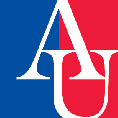 American University Washington College of Law’s Program on Information Justice and Intellectual Property is seeking contributions to the online PIJIP Working Paper Series and for a Focus Issue of the American University International Law Review. The theme of the joint publication series is on promoting the public interest in international or comparative intellectual property law. Submissions will be considered for both publications.
American University Washington College of Law’s Program on Information Justice and Intellectual Property is seeking contributions to the online PIJIP Working Paper Series and for a Focus Issue of the American University International Law Review. The theme of the joint publication series is on promoting the public interest in international or comparative intellectual property law. Submissions will be considered for both publications.
The topic for this paper series flows from the growing recognition of the public interest dimension of intellectual property as a paramount concern in international law making. Though there seems to be a fairly broad agreement on the need for a more balanced intellectual property system which effectively promotes innovation and creativity, there has been insufficient attention to mapping specific policy proposals and justifications that may animate this agenda.
The topic for this series was the focal point of the Global Congress on Intellectual Property and the Public Interest held at American University Washington College of Law in August 2011. The Global Congress brought together scholars, policymakers and advocates to deliberate about opportunities for constructing a positive policy and research agenda for international intellectual property law. During and after the Congress, participants collaborated to produce the Washington Declaration on Intellectual Property and the Public Interest, which sets an agenda for public interest scholars and advocates.
This call for papers is open to any submission, whether or not the author(s) attended the Global Congress or participated in the drafting of the Washington Declaration. We are interested in policy and academic work that engages any of the themes articulated in the Declaration, proposes or justifies specific policy proposals, critiques current policy proposals in comparative or international law, reviews or contributes to empirical research on the effect of intellectual property law on development or other public interest concerns, or otherwise contributes to the subject of how to promote the public interest through international and comparative intellectual property law.
Submissions of varying lengths will be considered. On average, we expect papers to be between 5,000 – 10,000 words.
Paper submissions will be accepted on a rolling basis. The final submission date for consideration for the focus issue of the American University International Law Review is January 9, 2012. Submissions will be accepted through an online form at: http://infojustice.org/2011-global-congress-public-paper-submission
Expressions of intent to submit a paper are helpful and we can endeavor to pre-approve drafts for publication. Please contact Sean Flynn at sflynn@wcl.american.edu
BACKGROUND ON PIJIP WORKING PAPER SERIES
PIJIP’s online working paper series publishes draft and final papers that examine the promotion of the public interest in intellectual property law. The working paper series does not take any copyright in posted papers other than a non-exclusive license to post the work on our site. Authors are free to republish works from the series in other online or print forums. Each paper is edited for form and citation style by a team of student editors before publication. Edited drafts are returned tot he author. Our quick-response editing teams can normally edit and publish a paper in less than four weeks from its approval for publication, giving authors a speedy outlet to publish their works in a professional fromat.
BACKGROUND ON AUIRL
The American University International Law Review (“AUILR”) is one of the ten most frequently cited student-run international law publications in the United States. AUILR publishes articles, critical essays, comments, and case notes on a wide variety of international law topics, including public and private international law, the law of international organizations, international trade law, international arbitration, and international human rights.
CITATIONS
Citations should follow the “Blue Book” uniform system for legal citations. Non-U.S. legal professionals may find the basic information they need to conform to the citation forms with the following example of basic citation forms, and through Cornell University’s online guide.




